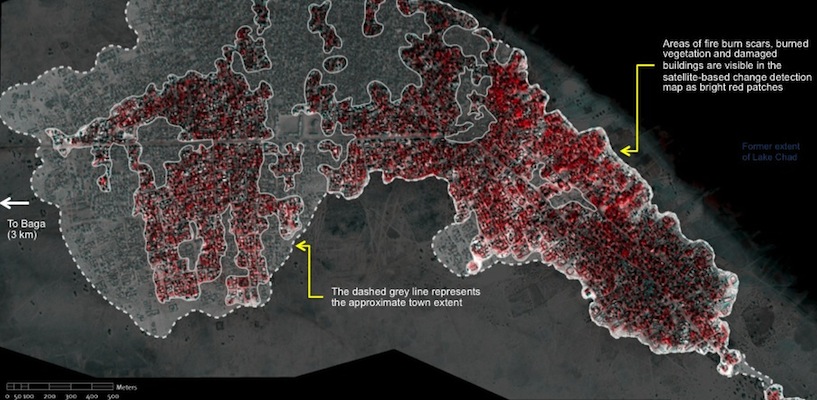In April 2014, almost 300 girls attending a secondary school in Chibok, Nigeria were kidnapped from their school in the middle of the night. They were abducted by an Islamic extremist group dubbed Boko Haram, who have been launching attacks against schools and villages in Nigeria, Chad and Cameroon.
Sadly, they targeted the girls in part because of their belief that the “inauthentic” colonialism-descended education system is a sin. The girls’ schooling was detrimental to their mission to overthrow the Nigerian government in order to establish a fundamentalist Islamic state. Making things worse was the lack of media coverage of the kidnapping. It seemed that the information about the kidnapping only reached international headline news after a heavy Twitter campaign, under the hashtag #BringBackOurGirls.
The little coverage that it did receive was short lived, and in some ways disrespectful. The French satire magazine, Charlie Hebdo, even depicted the kidnapped girls as pregnant, Black and Muslim Welfare Queens. The cartoon ignores the fact that the kidnapped girls were kidnapped from a Christian school and are most likely Christian themselves. It also belittles the fact that the girls are being forced into marriages and are victims of sexual assault. Instead, the cartoon relies on racist tropes for the sake of “satire” (satire being in quotes because comedy at the expense of the oppressed isn’t satirical and rarely funny).
Last week, 8 months after the kidnapping of the Chibok girls, a shooting occurred at the offices of the Charlie Hebdo magazine in Paris, and 12 people were killed. The media was quicker to pick up on this story and the hashtag #JeSuisCharlie rapidly became a trending topic all over the world, almost drowning out the news that Boko Haram massacred as many as 2000 people and razed 16 villages in a 5-day span the same week as the Charlie Hebdo attacks.

Above: Human Rights Watch satellite analysis of Doro Gowon, Borno state, Nigeria, one of the towns attacked by Boko Haram this month. 57% of the town is estimated to have been burned down based on this image. Click for full image and article in a new window. (Credit: Human Rights Watch)
The instant support of Charlie Hebdo and the struggle for support for the Chibok girls says a lot about the narrative that the US and European media wants to compose when it comes to which victims are worthy of sympathy. Despite the offensive cartoon drawn about the Chibok girls by the Charlie Hebdo magazine, and the offensive cartoons of the Prophet Muhammad – which is the reason why Charlie Hebdo was specifically targeted by the extremists – it seems as if the magazine has been pushed into almost martyr status.
Marches and rallies are happening all over Europe in solidarity with the magazine, while attacks on Mosques in France are being ignored. Cartoonists have even gone so far as to create the hashtag #CartoonistLivesMatter as an attempt to express the importance of their freedom of speech.
There are hundreds of schoolgirls missing, for most of the past year. Thousands have been displaced in just the past two weeks, with possibly thousands more killed. There are entire generations of families murdered in Northern Nigeria.
These lives matter just as much as the lives of the French cartoonists who mocked their pain only months before. Yet it seems to be widely ignored. This disparity is so severe that Nigerian President Goodluck Jonathan has even made statements in solidarity with France about the Charlie Hebdo shootings but, as of Tuesday, had yet to make a statement about the killings happening in Nigeria. (Today, a full week after the news broke, President Jonathan finally traveled to Borno state.)
Racism and xenophobia makes it easier for France and the rest of Western Culture to sympathize with Charlie Hebdo while ignoring the events in Nigeria. For years now, France has been passing laws that specifically target it’s growing Muslim population, while the Charlie Hebdo magazine (increasingly frequently since 2000) drew offensive cartoons mocking Islamic religion. France hasn’t been asked to apologize for these laws, and Charlie Hebdo refuses to apologize for their cartoons. The latter went so far as to draw a cartoon of the Prophet Muhammad even after the shootings.
Muslims in France, on the other hand, have been made to apologize for the act of extremists. Malek Merabet — brother to Ahmed Merabet, who was the first police officer killed at the Charlie Hebdo attack — spoke in a press conference about the incident explaining how Islam is not a religion of zealots. Many other Muslim groups in Europe spoke out against the attacks, but they shouldn’t have to.
Nobody is trying to say that both events aren’t tragic, they certainly are. However the lack of interest in the events of Nigeria speaks to how the media likes to represent victims. On an international scale, the lives of Black people are valued less and Islamophobia turns all Muslims into extremists when violence happens in European countries.
If the media outrage over the Charlie Hebdo shooting was about anti-terrorism, that same outrage should also be focused on Nigeria, or any other country where extremists are killing Muslims and other non-White/non-Christian people in large numbers. Perhaps media should not say “Je Suis Charlie” Hebdo, but make a better effort instead to be someone else.
I am not Charlie, I am Ahmed the dead cop. Charlie ridiculed my faith and culture and I died defending his right to do so. #JesuisAhmed
— Dyab Abou Jahjah (@Aboujahjah) January 8, 2015
Editor’s note: For additional discussion of the different levels and styles of coverage on these two situations, please listen to the Arsenal For Democracy radio show’s Episode 113 recorded January 12, 2015.


